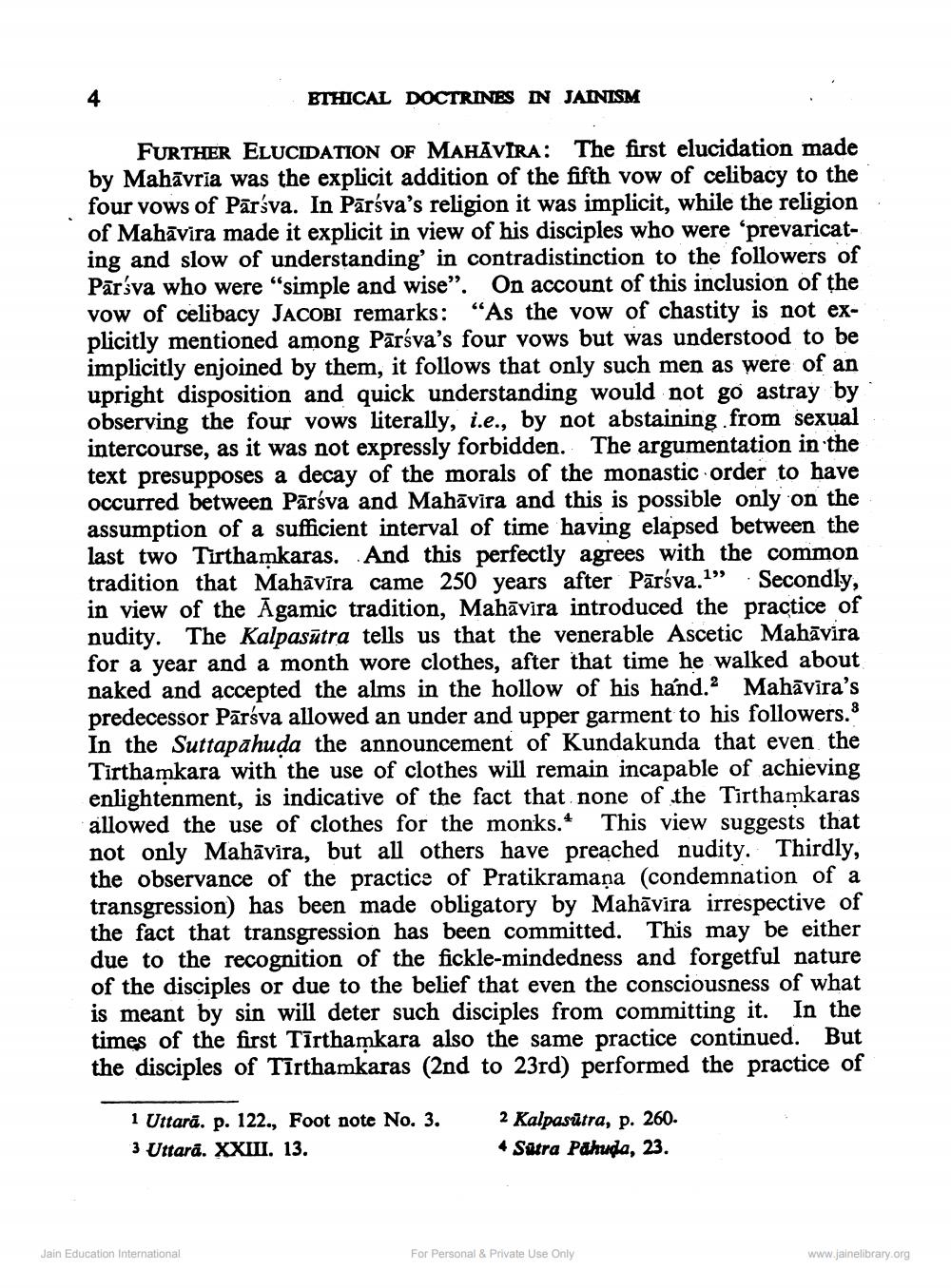________________
ETHICAL DOCTRINES IN JAINISM
FURTHER ELUCIDATION OF MAHĀVIRA: The first elucidation made by Mahāyria was the explicit addition of the fifth vow of celibacy to the four vows of Pārsva. In Pārsva's religion it was implicit, while the religion, of Mahāvira made it explicit in view of his disciples who were 'prevaricating and slow of understanding in contradistinction to the followers of Pārsva who were "simple and wise". On account of this inclusion of the vow of celibacy JACOBI remarks: “As the vow of chastity is not explicitly mentioned among Pārsva's four vows but was understood to be implicitly enjoined by them, it follows that only such men as were of an upright disposition and quick understanding would not go astray by observing the four vows literally, i.e., by not abstaining from sexual intercourse, as it was not expressly forbidden. The argumentation in the text presupposes a decay of the morals of the monastic order to have occurred between Pārsva and Mahāvira and this is possible only on the assumption of a sufficient interval of time having elapsed between the last two Tirthamkaras. And this perfectly agrees with the common tradition that Mahāvīra came 250 years after Pārsva.1" Secondly, in view of the Āgamic tradition, Mahāvira introduced the practice of nudity. The Kalpasūtra tells us that the venerable Ascetic Mahāvira for a year and a month wore clothes, after that time he walked about naked and accepted the alms in the hollow of his hand. Mahāvīra's predecessor Pārsva allowed an under and upper garment to his followers. In the Suttapahuda the announcement of Kundakunda that even the Tirthamkara with the use of clothes will remain incapable of achieving enlightenment, is indicative of the fact that none of the Tirthamkaras allowed the use of clothes for the monks. This view suggests that not only Mahavira, but all others have preached nudity. Thirdly, the observance of the practice of Pratikramana (condemnation of a transgression) has been made obligatory by Mahāvira irrespective of the fact that transgression has been committed. This may be either due to the recognition of the fickle-mindedness and forgetful nature of the disciples or due to the belief that even the consciousness of what is meant by sin will deter such disciples from committing it. In the times of the first Tīrthamkara also the same practice continued. But the disciples of Tirthamkaras (2nd to 23rd) performed the practice of
1 Uttara. p. 122., Foot note No. 3. 3 Uttara. XXIII. 13.
2 Kalpasūtra, p. 260. Sutra Pahuda, 23.
Jain Education International
For Personal & Private Use Only
www.jainelibrary.org




